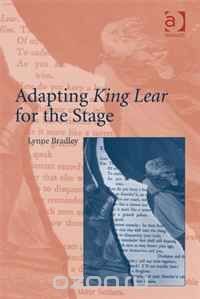Questioning whether the impulse to adapt Shakespeare has changed over time, Lynne Bradley argues for restoring a sense of historicity to the study of adaptation. Bradley compares Nahum Tate's "History of King Lear" (1681), adaptations by David Garrick in the mid-eighteenth century, and nineteenth-century Shakespeare burlesques to twentieth-century theatrical rewritings of King Lear, and suggests latter-day adaptations should be viewed as a unique genre that allows playwrights to express modern subject positions with regard to their literary heritage while also participating in broader debates about art and society. In identifying and relocating different adaptive gestures within this historical framework, Bradley explores the link between the critical and the creative in the history of Shakespearean adaptation. Focusing on works such as Gordon Bottomley's "King Lear's Wife" (1913), Edward Bond's "Lear" (1971), Howard Barker's "Seven Lears" (1989), and the Women's Theatre Group's... Это и многое другое вы найдете в книге Adapting King Lear for the Stage (Lynne Bradley)
Adapting King Lear for the Stage Lynne Bradley
Подробная информация о книге «Adapting King Lear for the Stage Lynne Bradley». Сайт не предоставляет возможности читать онлайн или скачать бесплатно книгу «Adapting King Lear for the Stage Lynne Bradley»
